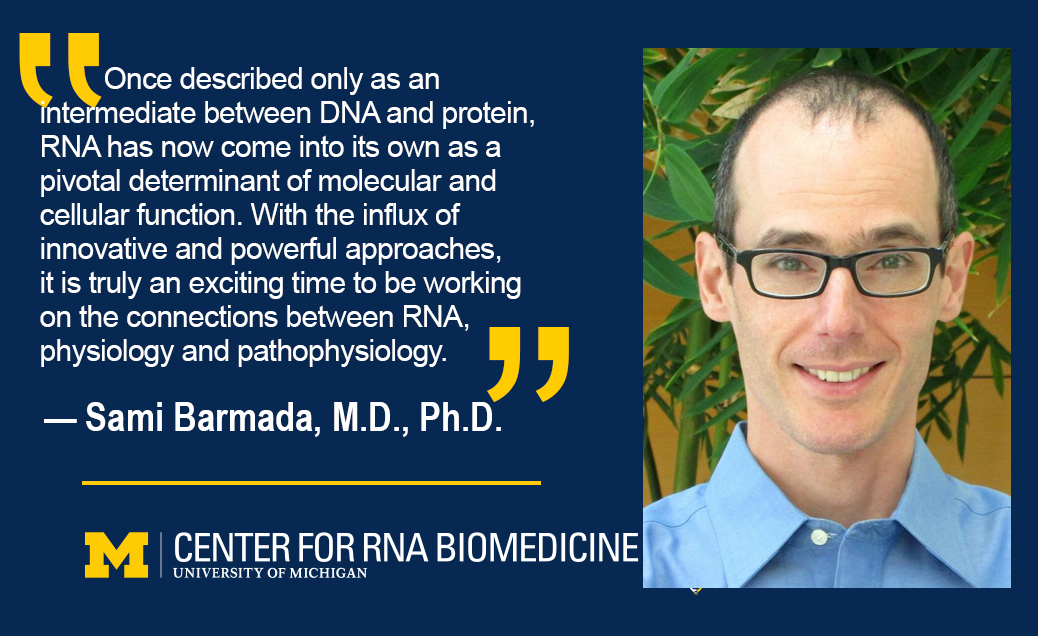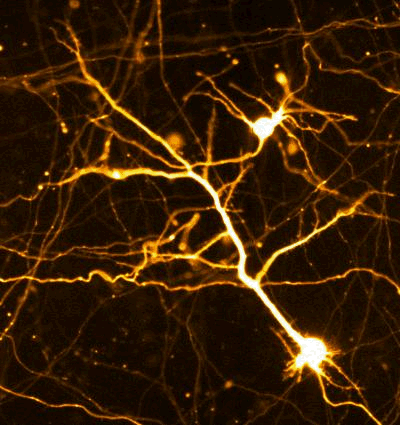RNA Faculty Spotlight – Sami Barmada, Neurology

Sami Barmada, M.D., Ph.D.
Associate professor
Neurology, Medical School
- What is the role of RNA in your research?
RNA homeostasis is crucial for neuronal function and health. We study the regulation of RNA and protein homeostasis, and how abnormalities in these processes lead to neurodegenerative diseases.

The image shows two neurons — the one in the bottom left dies, while the one in the top right lives. We’re studying why neurons die in ALS and frontotemporal dementia, but also why some neurons live.
- Is there a layman image to explain your research?
I think this .gif above encapsulates much of what we do. Why is the bottom neuron dying? Just as important, what keeps the top neuron alive? At a fundamental level, these are the questions that drive our work. - Who/what brought you to science?
When I was in college I began working in a lab, and it was one of the best decisions I ever made. Then I read an article on prion disease by Stanley Prusiner, and I was hooked.
- What brought you to the University of Michigan?
The people and the opportunities. This institution really stands out in terms of the collaborative and outstanding faculty, the quality of students and postdocs, and the support for exceptional science. - What advice would you give to students who’d like to get more involved in research?
Depth can be more valuable than breadth. In choosing a research project or lab, look for one in which you can make an impact, rather than just gain experience. - Are there any opportunities for students to engage in your projects, currently or in the future?
Yes!- What skills would they need?
Motivation, curiosity, and perseverance. - What could they expect to learn?
Computational analyses of image-based date, bioinformatics, automation, protein biochemistry, molecular biology, cloning, genome modification, stem cell maintenance and differentiation, primary neuron dissection and culturing, mammalian cell culture, high-content and high-throughput microscopy, drug screening
- What skills would they need?
- What profession other than your own would you enjoy, or what is your favorite hobby?
Anything that would give me more time outside — I like to spend my time running, biking, swimming, climbing, skiing, and more.
